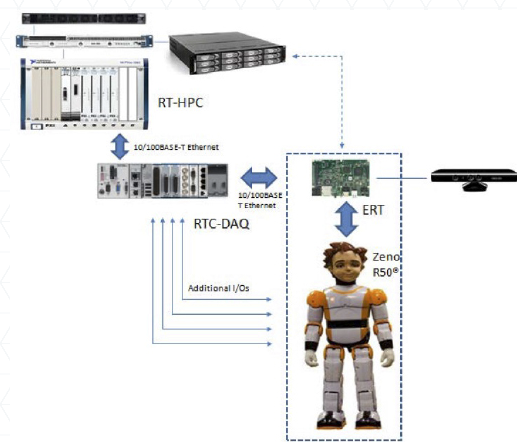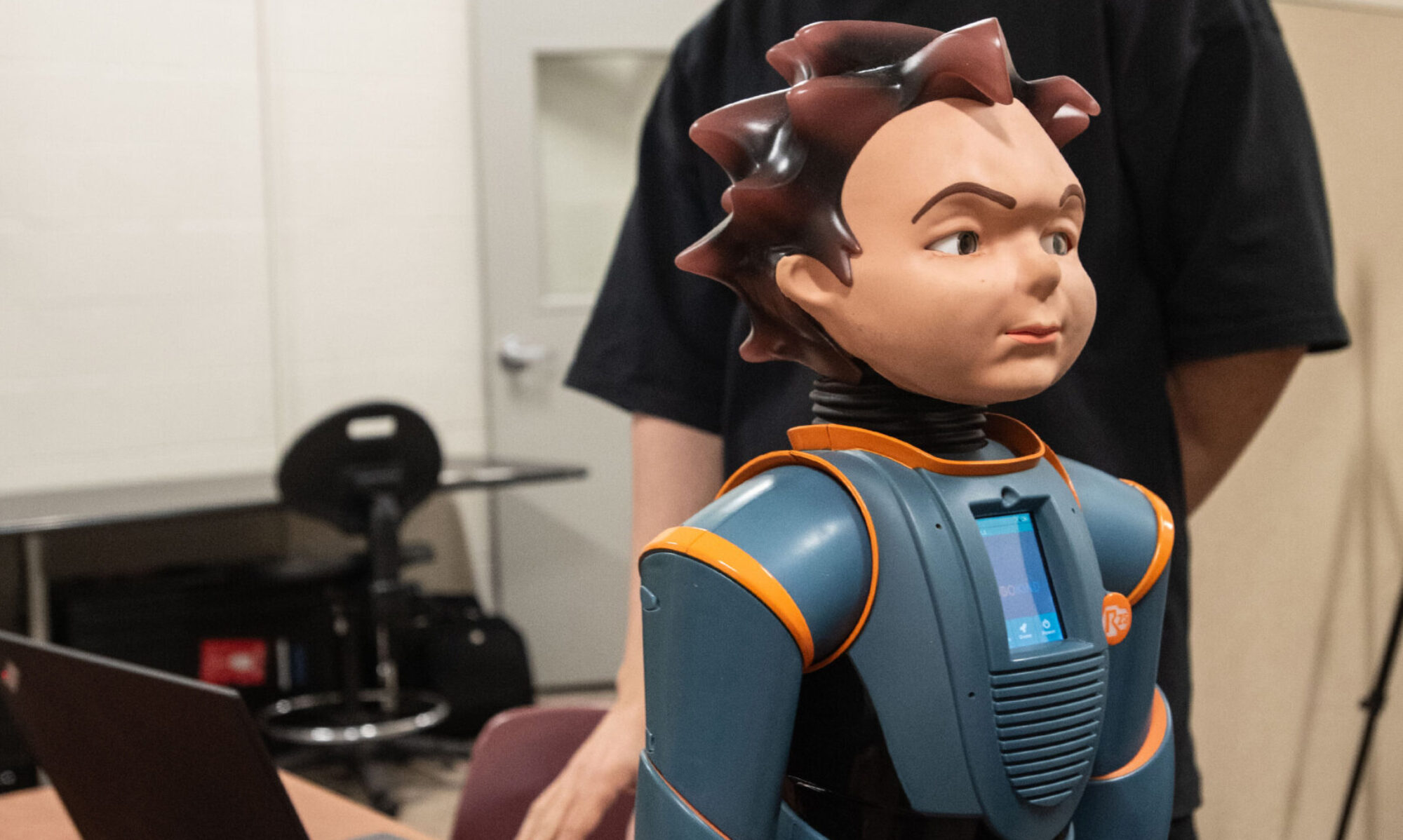ADAPTIVE PARTNERSHIP FOR THE ROBOTIC TREATMENT OF AUTISM
Assistive Robotics with Applications in the Treatment of Cognitive and Motor Disabilities
This project is funded by the Smart And Connected Health at National Science Foundation
Recent advances create new opportunities for building robots with sophisticated interactivity, realistic appearance, data collection and machine learning. Our project objectives are:
- Formulate new ASD severity scale based on motion and emotion metrics.
- Develop neuro-inspired adaptive robot therapy.
- Conduct experimental evaluations under IRB.
The project focuses on treating cognitive impairments in children with ASD by using social robots Zeno, Milo and Nao. The clinical hypothesis is that motor developmental problems, including imitation, are present and can be used in identification and treatment of ASD. The technological hypothesis is that a child-like robot with adaptive behavior can motivate children with ASD to engage in motor activities based on emotion. The robot motor cortex will adapt appropriate emotional responses and motion performance in the robot in response to the subject. The clinical hypothesis is that interaction can then be used as a vehicle for ASD evaluation, sensory-motor improvements, and learning of social skills. An investigation under IRB using approximately 100 human subjects, including ASD children age 8-12, will be conducted during our four-year project. Some of the children will also suffer from epilepsy, as links between autism and childhood epilepsy have been established.
Research Approach
- Imitation Learning (Gestures, Expressions): Robot Teacher, Human Teacher
- Teaching by Demonstration: Ideal motion/emotion imitated by Human Subject
- Dynamic Movement Primitives (DMP): Framework for describing motion encoded on robot
- Dynamic Time Warping (DTW): Compare gestures/motions of human and robot
- Emotion of subject used to adapt motion of robot: Continuous emotion metric estimate from human (CEM)
- Motion of robot used to elicit emotion of subject: Neuroadaptive controller used to adapt robot motion
- Motion Performance and Emotion Response of subject fused as ASD scale (CEM+DTW)
A new ASD robot with real-time control, data acquisition and machine learning will be created in collaboration with Robokind, Inc. and National Instruments.

